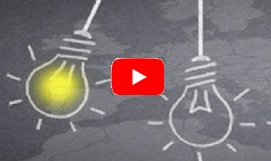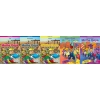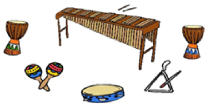Dear parent, your child will be okay - the reassurance we all need
Sometimes, it’s all you can do to stay sane as a parent, to get through the day and accomplish the necessary. You, dear parent, are raising children in one of the most challenging times we’ve ever seen. And you’re doing better than you think. Really.
The effect of the pandemic on education
The pandemic has not only affected how you approach your child’s education, but probably your entire approach to life as a parent, as an adult, and as a family. Your concern for your child(ren)’s education is also crowded with financial worry, health worries, loss of loved ones, and any number of other related challenges.
Here’s the truth you need to hear:
Your child is not behind. You are not behind. Behind whom? Or what? Everyone is struggling. Yes, some families have more resources and/or support than others, but the one thing we as parents have in common is a concern for our children’s learning and their future.
Your child is not behind
The notion of falling behind only adds unnecessary pressure to a situation that is already challenging. Think about it — you as an adult are having days where you are overcome with frustration, discouragement, anxiety, fear, and worry. You have days where you simply don’t have it together, but you do what you can to cope. And that’s okay. Your children will experience the same emotions. They may not have enough life experience to grasp how very different this “new normal” is, but they do know that this is not how it should be. They feel it. They see it on the grownups’ faces.
Give yourself and your children grace, patience, and the comforting reassurance that life is not about “not falling behind”, but about living. No one has gotten what they expected from this season of life. Some have done well and overcome incredible losses. Some are in the thick of loss right now. Others are in between one season ending and another beginning, looking for clarity in the confusion.
Governments and the Department of Education may make any number of rules, but fundamentally, at home, you are the parent in charge, and YOU know your child best. You know the things that upset your child(ren) and what helps him/her to feel okay and at peace enough to be able to learn. This is your starting point, not society’s ideas of what your child “should” be doing at his/her age.
Milestones that matter more
What matters more — your child being able to read and do math at grade level, or your child’s emotional and mental well-being? Achieving academic success at the cost of intense anxiety and panic attacks, bullying, depression, insomnia, and self-esteem is too high a price for a child to pay just to be able to “keep up” with children at school that was not affected according to your imagination.
Let’s remember the goal of educating our children: to raise competent, confident, capable, independent adults with healthy coping skills, resilience, creativity, critical thinking skills, and the ability to problem-solve various life challenges.
A matric certificate alone will not be sufficient. It requires walking through these pandemic-related challenges with your children and taking the time to teach them about emotional and mental health (which you dear parent, probably also sorely need!). Give extra hugs and cuddles. Read stories. Watch documentaries. Listen to your children’s questions, really listen. Figure out the answers together. There are many ways to learn valuable principles. Show them that academic milestones don’t define their potential, their future, or their worth. Yes, learning is important, but who they are as a young person is even more important.
Academic learning can be “caught up” at any time. But life itself is an hourglass of sand running out. Let your child discover life in ways that boost self-confidence.
But what about the BELA Bill?
There are valid concerns on social media about the BELA Bill being passed as law in the coming years if the Department of Education continues ignoring the roundtable discussions with the homeschooling community.
Many parents complain about getting no feedback on attempts to register their children for homeschooling with the DOE, or only getting feedback, if at all, a year later. Others have problems with not getting a placement at local schools and therefore being forced to start homeschooling when it was not their first choice.
These concerns are valid and real, and whatever happens, the homeschool community will continue fighting for the right to homeschool, for the right to access education in multiple ways, multiple places, without restrictive regulations. You are welcome to add your voice to the cause by joining the Pestalozzi Trust, SA’s homeschool legal defense organization, and joining your province’s homeschooling association.
Bouwe van der Eems (chairman of the Pestalozzi Trust) commented, “If it wasn’t for a well-established home education ecosystem, it would not have been possible to open schools as early as they did during the pandemic. Minister Angie Motshekga knows this very well. Despite this, however, the minister of Basic Education relentlessly proceeds with the introduction of BELA Bill, which is a covert attempt to progressively ban home education for all practical purposes over a period of time. Now that the bill is in parliament, the fight has only gotten started, and home educators must move to the next level. They must fight the bill in public participation. They must fight it in portfolio committees. They must fight it in public hearings. They must fight it when the official pitches up at the door. And eventually, they must fight in the end game in the courtrooms.”
Continue doing your best
In the meantime, use the opportunities and resources available to you. Connect with your local homeschooling community and discuss the options you are considering for your children with families who have similar circumstances and values to yours. Give your family the freedom to try new approaches, new resources, and a new routine based on reaching life goals, rather than just academic milestones. This includes the freedom to be able to say: “This approach/material doesn’t work for me; we’re going to try something else instead.”
Take courage from the school in Muizenberg where staff has been forced to take a community-based and innovative approach to educate their children without an official school building!
One of their teachers, Katherine Whaling, explains it like this:
“So we are creating a school environment that is incredibly generative and loving, helping children to experience and learn at an intellectual level, at an emotional level, at a spiritual level, in a very local and real way. So really drawing upon the natural world around us, the seasons, the beauty of the beach and the mountain, and the whole community. It’s actually seeing Muizenberg as an ecosystem of learning. I mean, you walk down the street with your class and you meet the neighbors. You walk past the shop and the shopkeeper loves it and says ‘hi,’ and give the kids bananas, or whatever.”
Their incredible story (published here) tells you that you are not alone. This school is run by parents and teachers who have a common goal — the best interests of their local children, and their access to an education that makes sense in their daily context. You can do exactly the same.
Your child will be okay, whether you switch between three different methods of homeschooling and multiple types of curricula. Should you be in a situation where your child was/is homeschooled for a while and returning to school, your child will have gained so much self-confidence and recovered strength from being with you, that any academic gaps can be addressed relatively easily with some support.
Dear parent, your child is going to make it — with you
You will be okay, whether you change jobs, start a new business, or go in an entirely new direction in life. You and your child(ren) will be okay even if you take a year off from focusing on schoolwork and just work on recovery from major change and loss in the family. It will be worth it. The most important is that you and your child(ren) have each other as you walk through it. That is what counts.

Events
Has no connect to show!
Legal & Research
Homeschooling and the law
Home schooling was recognized in 1996 in Section 51 of the SA Schools
+ ViewCentres
Homeschool ABC
Support
Curriculums
PASS Ged Academy
Pass GED® Academy is your online pathway to achieving your Grade 12 ...
GED through Learnalot - Grade 12 ...
Why enrol with Learnalot? With Learnalot, you have the flexibility ...
Frequently Asked Questions
-
Can I be a working mom and homeschool?
Single parents who are committed to homeschool organize a schedule around their work commitments and sometimes involve family or tutors to assist...
-
Is homeschooling legal in South Africa?
Yes. Since 1994, the right for parents to home educate their children was legalised in South Africa through the adoption of the new constitution. In...
-
How does homeschooling work?
Homeschooling is different for every family as it depend on the parents educational goals for their children Education is the development of the...
-
Do homeschoolers take holidays?
Yes, they take breaks. Some homeschool families follow the public school year calendar especially if they are involved in sport and music...
Has no content to show!
































Comments